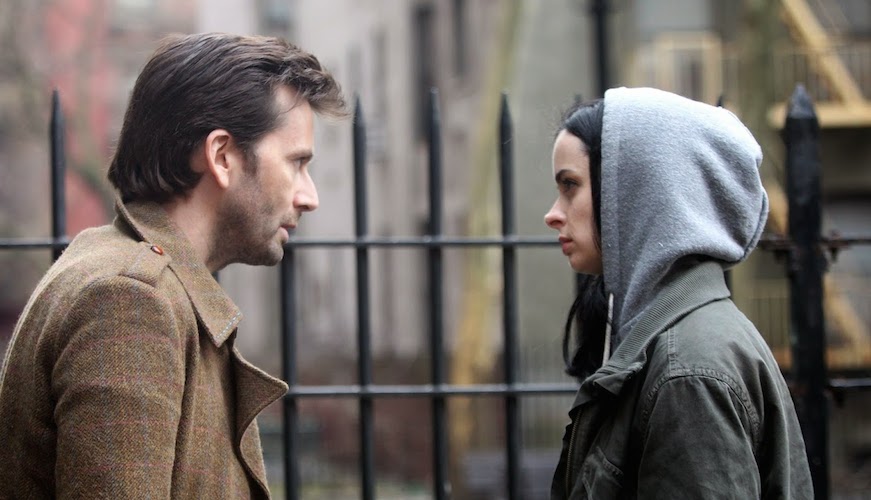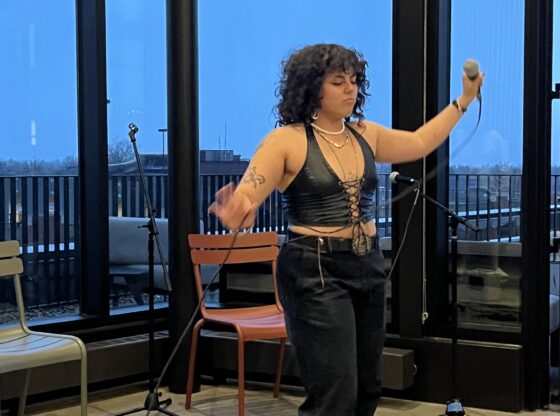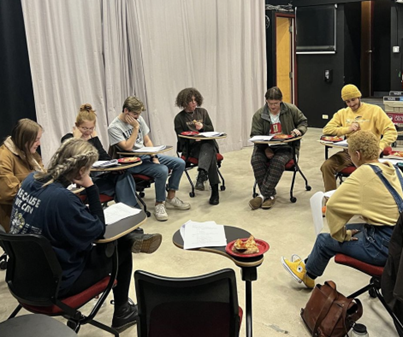Netflix’s “Marvel’s Jessica Jones” shines a light on the lesser-known comic book hero of the same name, played by Krysten Ritter (“Don’t Trust the B in Apartment 23”). In the same vein as Marvel’s other Netflix series, “Daredevil,” “Jessica Jones” gets dark and gritty, unafraid of using mature themes like violence and sex. However, the new series takes it one step further, using it’s TV-MA rating to tackle an important issue realistically. The show is not just the typical superhero narrative, where Jones saves the city from total destruction, but an important representation of what it’s like to be a victim of an abusive relationship.
The series begins by showing Jones in the present day, a private eye with exceptional strength and a strong dislike for other people. As the show progresses, it is revealed she has recently escaped a highly abusive relationship with a man who calls himself “Kilgrave,” played by David Tennant (“Doctor Who”). Kilgrave possesses the power of mind control, allowing him to force others to do whatever he wants them to with just the sound of his voice. He used this power to manipulate Jones into being his girlfriend, forcing her to do things she would never have done if she had free will. After inexplicably freeing herself from his influence, Jones goes into hiding, isolating herself, feeling guilty for the things Kilgrave made her do.
Kilgrave inevitably returns, terrorizing and manipulating the citizens of Hell’s Kitchen. Unlike other villains, such as Ultron from “Avengers: Age of Ultron,” Kilgrave has no desire for world domination or universal destruction. He has one desire and one desire only: Jessica. And though he says again and again his behaviour is out of love, the show makes it clear this is a deeply harmful relationship, with several characters explicitly labeling it as abusive. This culminates in a confrontation between Jones and Kilgrave, where she says, “Not only did you physically rape me, but you violated every cell in my body and every thought in my goddamn head.”
The best part about “Jessica Jones” is it leaves little room for sympathy for Kilgrave and the victim blaming rhetoric so often seen in media. Rather than using the characters as mouthpieces to lament how Kilgrave “didn’t know any better,” the series instead explicitly shuts this idea down and focuses on how the relationship affected Jones. It shows how she is triggered when Kilgrave returns, even discussing her PTSD resulting from the relationship. She is very obviously the victim in this situation, rather than a woman who “should have known better.”
He stalks her, threatens her loved ones and forces her to use her powers to benefit him. He’s a textbook abuser, and this is what makes him so terrifying. He could be anyone. While humans don’t have the power of mind control, abusive relationships are a real and prevalent issue. According to The National Domestic Service Hotline, “24 people per minute are victims of rape, physical violence or stalking by an intimate partner in the United States.” “Jessica Jones” takes the issue of abuse and handles it with care, giving it the uncensored platform of discussion it needs.
Those who feel they are victims of an abusive relationship can call The National Domestic Service Hotline at 1-800-799-7233.
Season 1 of “Marvel’s Jessica Jones” is now on Netflix.











